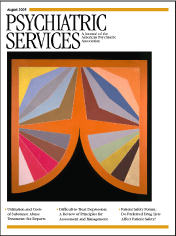Two books on problematic sexual behavior are reviewed here.
Stalking and Psychosexual Obsession: Psychological Perspectives for Prevention, Policing, and Treatment, edited by Julian Boon, a highly regarded forensic psychologist, and Lorraine Sheridan, a noted expert on the psychology of stalking, both of the University of Leicester in London, offers a well-conceived and thorough account of the extant information available about a previously underresearched but increasingly concerning area of interpersonal violence.
Stalking, as noted in the book's preface, is an "extraordinary type of crime" whose operational definition has been difficult to articulate but that "embraces a multitude of activities," the potentially violent sum of which appears to be significantly greater—and more odious—than its inconvenient and harassing parts. The goal of this work is well met as the editors examine the early and foundational thinking about stalking behavior and use it as a scaffold for building on the development of new, empirically substantiated, and increasingly focused conceptualizations about this disturbing phenomenon.
Making good use of a field of international experts who offer well-grounded and diverse views of this often-complex behavioral event, the book provides a broadly conceived and comprehensive picture of stalking. From appreciating and addressing the needs of the victims of stalking, including understanding their psychological vulnerabilities, recognizing the negative effects that proceed from this form of interpersonal aggression, and identifying strategies for victim support and stalking prevention, to the more academic endeavor of developing a typological system for identifying and categorizing stalkers in order to support law-enforcement efforts at response and prevention, Stalking and Psychosexual Obsession is filled with solid information, utilitarian insight, and sound guidance. The book also examines stalking within the context of domestic violence and the relatively unusual occurrence of stalking as observed among women and children and the new phenomenon known as "cyberstalking."
Written in a variety of styles that range from a formal review of statistical data on the psychological consequences of stalking to a theoretical presentation of stalker subtypes to an informal, nearly conversational account of how one becomes a victim of stalking, the content of the book is variably presented but ultimately in a straightforward and accessible manner. Mental health professionals who work in the area of interpersonal violence—as well as those in law enforcement and the criminal justice system—will find that Stalking and Psychosexual Obsession will add both depth and breadth to their existing knowledge base in an area of growing clinical and legal interest and increased social concern.
The second book is Relapse Prevention for Sexual Harassers, by Kirk A. Brunswig and William O'Donohue. Relapse prevention as a clinical intervention began its life as an examined response to the voracious and often devastating cycle of substance abuse. It was later adapted and applied to the perhaps even more deleterious cycle of sexual deviance demonstrated by sex offenders. Relapse Prevention for Sexual Harassers represents yet another morphing of the original concept behind relapse prevention to be applied to yet another problematic population.
Identified as a "stand-alone treatment manual," this book adequately and concisely guides the reader through the steps of applying relapse prevention to the behavioral patterns associated with sexual harassment, a concept that, unfortunately, is never quite clearly articulated by the authors themselves. With a few minor modifications and a nod to the need to include an assessment of an individual's actual motivation to alter sexually harassing behavior, the text outlines a number of relapse prevention modules to be used with sexual harassers in an easy-to-understand, step-by-step format complete with a case example and samples of therapy transcripts.
Although this work is clearly demarcated solely as a treatment manual, I found myself wanting more information about how relapse prevention was conceptualized as an appropriate model for treating sexual harassers, an intriguing topic that was only briefly addressed, in approximately one page. I also thought it would have benefited readers, especially those who are new to the clinical ideas underlying sexual harassment, to have been offered a more comprehensive introductory chapter that would have highlighted current research on sexual harassment, examined the current incidences of sexual harassment, and provided an explanation as to why there are few empirical data on the impact of sexual harassment on victims. Although the book is a useful manual for this treatment application, if it were presented in a more comprehensive and empirically grounded format that recognized the contribution of the original relapse prevention model of Marlatt (
1), it could have been more substantive and could have read less like yet another relapse prevention approach to any given problem behavior.

